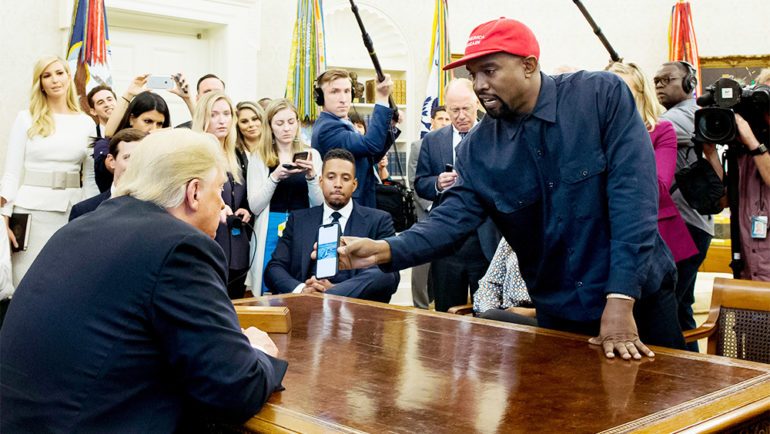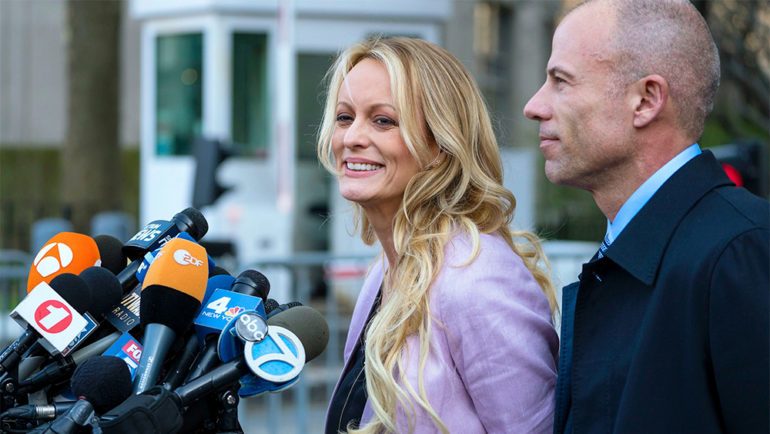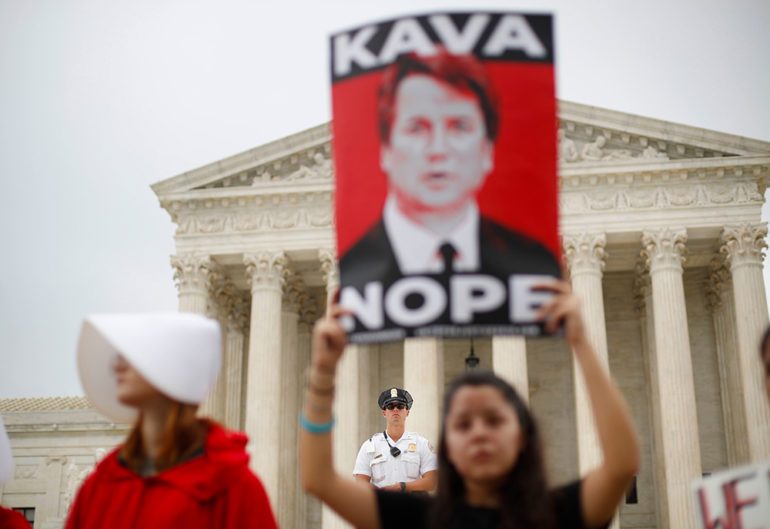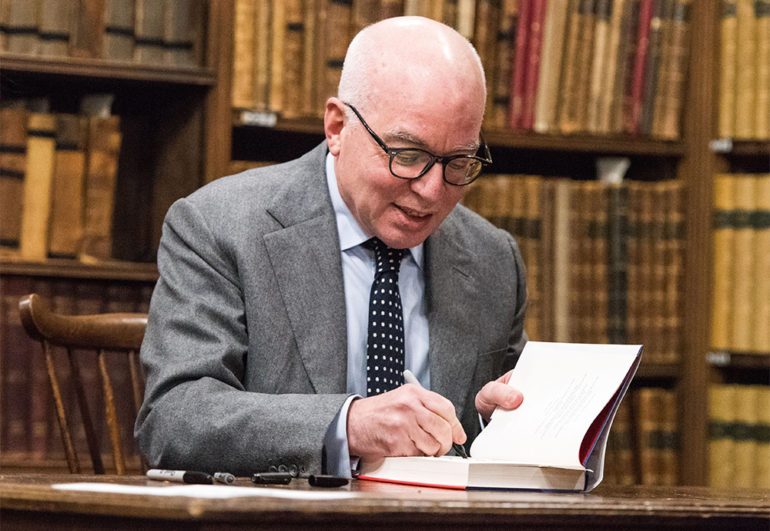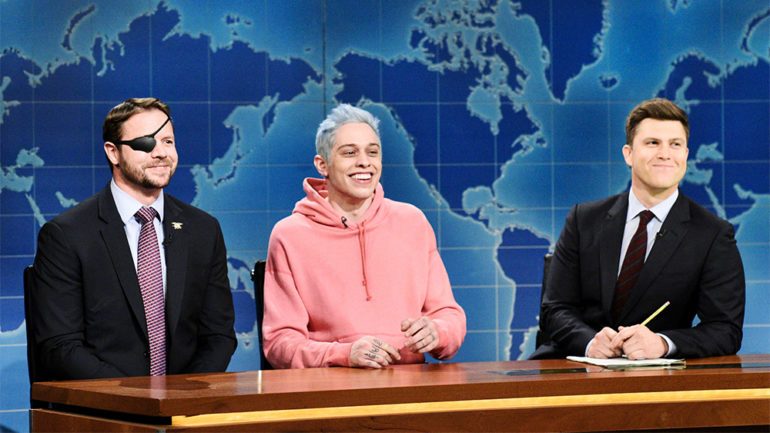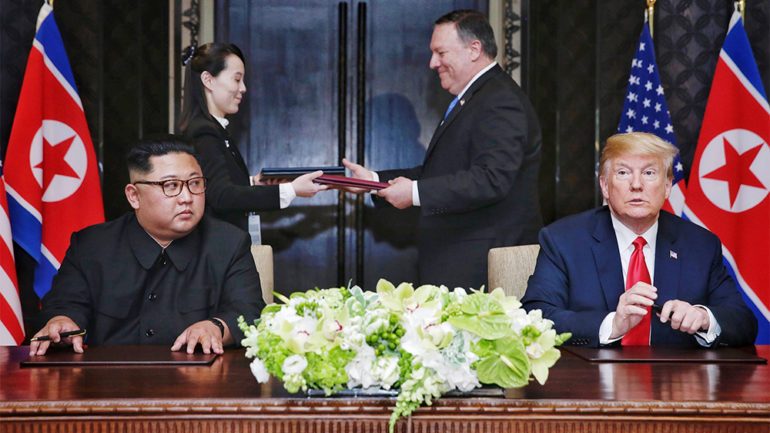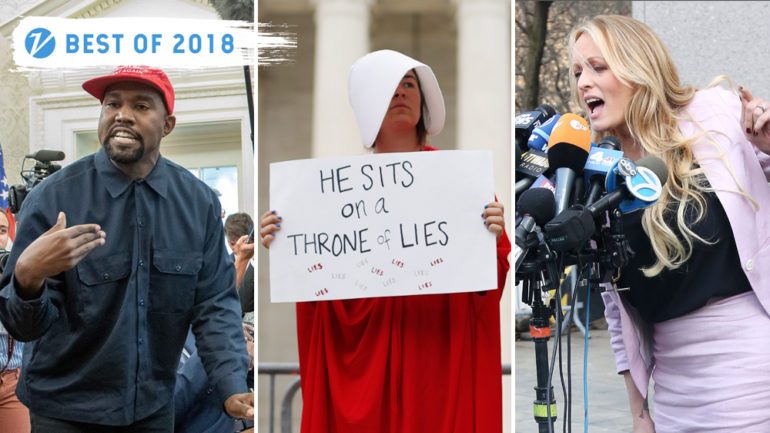The Biggest Politics and Pop Culture Moments of 2018
By Ted Johnson
LOS ANGELES (Variety.com) – The past 12 months seemed more like 48, as the year’s craziest political pop culture moments managed to top even the year before, when the surprise of Donald Trump’s presidential win was still fresh.
Most of the moments center around President Trump, who once again was willing to weigh in on just about anything in the media, amping up the culture wars like no other predecessor. Late night hosts, “Saturday Night Live,” the movie “First Man” — nothing was off the table or out of bounds.
But in this list of top ten moments are rare instances where the polarization receded, albeit momentarily. By and large, though, this was a year that signaled an even more momentous, and probably stranger, year ahead.
1. Kanye’s Oval Office soliloquy. When Kanye West visited the Oval Office in October, President Trump invited cameras in to capture the moment, live and unfiltered, for about 20 minutes. The result was surreal, particularly when West went on in a stream of consciousness soliloquy about politics and culture, and when he explained just why he came to admire the man sitting across from him behind the Resolute Desk. Wearing a MAGA hat, West told Trump that the headwear “made me feel like Superman. You made a Superman cape for me.” The ostensible purpose of the meeting was to talk about criminal justice reform and reinvigorating blighted communities, but the meeting, and Trump’s decision to allow reporters to televise it, reflected the president’s determination to use fly-on-the-wall reality show tactics to draw attention to himself and the White House, whether it be a meeting with West, a Cabinet debate or a confrontation with Chuck Schumer and Nancy Pelosi. It also underscored how Trump’s relationship with pop culture in general is far different from his predecessors. He embraces those who embrace him, even if a celebrity figure risks obscuring his own agenda. Weeks later, West said that he felt “used” by politics, but the moment was like no other in the West Wing.
2. Oprah’s Golden Globes speech. Oprah Winfrey’s speech at the Globes was not overtly political, but it was inspirational and topical enough to set off speculation that she would make for a viable presidential candidate. Democrats wondered if the perfect rival to Trump in 2020 was a superstar celebrity. The purpose of her speech was to address the entertainment industry’s sexual harassment scandals, and she showed how the problems were not exclusive to Hollywood but crossed cultures, geography, industries and income levels. She offered a message of hope (“when a new day finally dawns”) that countered the cynicism of much of politics. She nixed the idea of running for the White House before the speech and multiple times afterward, but it did reaffirm her influential voice when it comes to culture. She returned to the campaign trail for Stacey Abrams later in the year, and while Abrams lost, there’s little doubt that the field of 2020 presidential contenders will covet Oprah’s endorsement.
3. Stormy Daniels/Karen McDougal/AMI/Michael Avenatti. A porn star, a Playboy playmate, a supermarket tabloid and a publicity-hungry attorney were the ingredients for perhaps the most damaging revelations so far to Trump, all the more ironic in that they are occurring outside the official Russia investigation being conducted by Robert Mueller. Instead,New York federal prosecutors secured the plea deal and sentence of Trump’s former attorney Michael Cohen, providing the most direct claims yet that implicate the president in criminal wrongdoing. They also secured cooperation from Trump’s friend, David Pecker, and his company AMI, which admitted that its National Enquirer was turned into a Trump campaign house organ. As revealed in court documents, they protected Trump from damaging stories, even if that meant locking them away with wads of cash and non-disclosure agreements. There is more to come, certainly from Mueller, but the president is ending the year with one of his one-time true loyalists, Cohen, to have turned and his most fawning tabloid outlet, the Enquirer, cooperating with a federal investigation. The backstory is the role of Michael Avenatti in representing Stormy Daniels, as he had a meteoric rise of cable news exposure, peaking as he considered a presidential bid.
4. Christine Blasey Ford/Brett Kavanaugh testimony. There were many riveting TV moments, but nothing quite like this, an event that further divided the Senate and much of the American public. It led to one of the better “Saturday Night Live” skits of the year, with Matt Damon playing an irate Kavanaugh at the Judiciary Committee hearing. (“I liked beer. Still like beer”). The attention on the testimony rivaled that of the Clarance Thomas/Anita Hill hearings, and the impact reverberated through the midterm elections. In the long term, the effect is still somewhat unknown, particularly when it comes to the willingness of victims of sexual assault to come forward.
5. Meghan McCain’s eulogy. John McCain’s funeral in September was described as perhaps the highest-profile gathering of the Resistance Movement, what with President Trump not invited and his tenure criticized as the very brand of politics the late senator detested. First and foremost was McCain’s daughter, Meghan, who delivered a poignant, tearful and at times blistering speech that showed her love for her father and disdain for the current occupant of the White House. “We gather to mourn the passing of American greatness, the real thing, not cheap rhetoric from men who will never come near the sacrifice, those that live lives of comfort and privilege while he suffered and served.” At a time when much of the Republican party refuses to stray from support for Trump, McCain’s speech was a very visible reflection of the very vocal anti-Trump conservative sentiments that still exist.
6. Michael Wolff’s Trump book. “Fire and Fury” was a runaway bestseller that seemed to drive the White House crazy for its dishy premise, which is that Trump is losing it. Trump’s attorney actually fired off a legal letter threatening the publishers if publication plans were not suspended, a preview of the president’s inability to not just ignore a book and instead give it even more promotion than it otherwise would have gotten. It was true of “Fire and Fury,” Omarosa’s “Unhinged” and Bob Woodward’s “Fear.” Wolff’s book contained some errors, and the author engaged in some book tour innuendo, particularly his claim that Trump had been having an affair since he took office. “Fire and Fury” showed that there is a market for Trump tell-alls — and there probably will be for many years to come.
7. “Saturday Night Live” regular Pete Davidson apologizes to Dan Crenshaw. No other show commands as much attention for its political satire than “Saturday Night Live,” and for good reason: Going back to the days of Chevy Case and Gerald Ford, it can have an impact on shaping actual public perceptions of political leaders. But that status was threatened by a “Weekend Update” segment just before the midterm elections when made fun of a Texas congressional candidate, Dan Crenshaw, for wearing an eye patch. The right pounced, as Crenshaw was injured while serving as a Navy SEAL in Afghanistan. A week later, Davidson addressed the issue, not just by issuing some rote apology, but by having Crenshaw on the show to take part in another skit. In a year in which many politicians would try to capitalize on such an incident to fan the flames of the culture wars, Crenshaw did not. He was gracious, sincere and funny. And he continued to support the show for its First Amendment rights. After Trump went on one of his Twitter rants about the show in December, even threatening legal action, Crenshaw replied, “Yes, the media deliberately misleads and spins. It’s legal, and it needs to remain legal.” It was one of the rare examples of leftward culture and rightward political figures finding common ground.
8. Omarosa does “Big Brother,” then turns on Trump. When Omarosa Manigault Newman was fired from the White House, she hinted that there was more to come. Who could have doubted that? She took a spot on CBS’s “Big Brother,” and described the situation in the administration as “bad.” Then she published a tell-all, one that came with a twist: She secretly recorded conversations during her tenure, including Chief of Staff John Kelly’s meeting with her in the Situation Room in which she was told she would be let go. Trump called her a “dog” in one of his Twitter rants, but perhaps he was just as irked by the fact that, for at least a moment, he’d been one-upped by a protege in the ability to steal the spotlight.
9. Roseanne is fired. Roseanne’s return to television gave ABC an unexpected hit, a show that bridged political divisions of the Conner family by featuring a Trump-supporting character at its center. What the network surely should have anticipated is that the real-life Trump supporting Roseanne Barr shared his penchant for troubling tweets. Less than a day after she posted a tweet comparing former Obama adviser Valerie Jarrett to the Muslim brotherhood and “Planet of the Apes,” ABC canceled the show. Trump had congratulated Barr when her show was a success; when it was canceled, he seized on the moment to show how unfair it was…to himself. “Bob Iger of ABC called Valerie Jarrett to let her know that ‘ABC does not tolerate comments like those’ made by Roseanne Barr. Gee, he never called President Donald J. Trump to apologize for the HORRIBLE statements made and said about me on ABC. Maybe I just didn’t get the call?”
10. Trump woos Kim Jong Un with a video that is made to look like a movie trailer. Trump’s historic trip to Singapore to meet with Kim Jong Un had the world’s attention on just what the president would say to try to sway the erratic North Korean leader. In one of the more bizarre tales of American diplomacy, the White House created a movie-trailer like video presentation to show him, and it had all the feel of a promotion for the next “The Avengers” installment. It was designed to appeal to Kim’s love of movies and at the same time make the case for the economic possibilities for his country should he accept de-nuclearization demands. The rhetoric has cooled between Trump and Kim. That’s the good news. But as the trailer said, “The future remains to be written.”
